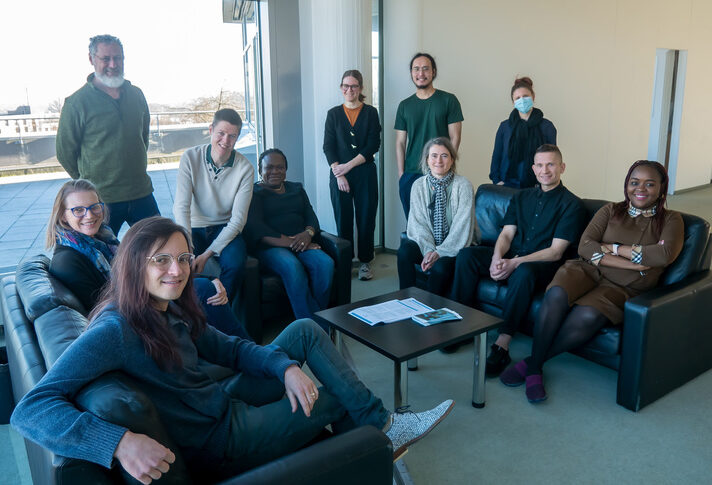How well do masks protect against infection? When is vaccination safe? What is the impact of school closures on students’ mental health? The Corona pandemic has shown how much political decisions rely on information from science. It has also become evident that research findings do not dictate political decisions. How the interchange between science and policy can be improved and what role philosophy can play in this process is the central question of the international research group ‘The Epistemology of Evidence-Based Policy: How Philosophy can Facilitate the Science-Policy Interface’, which is working at the Center for Interdisciplinary Research (ZiF) at Bielefeld University until June. On 30 and 31 March, the first workshop ‘Misinterpretation of Scientific Evidence’ will take place.
Political decisions should be informed by scientific findings, an approach which is called ‘evidence-based policy’. ‘The basic idea, which more and more governments are adopting, is that decisions should be based on evidence that can be or has been externally verified and validated, and that policies and programs should be thoroughly evaluated, preferably with the participation of interested citizens,’ explains philosopher Dr. Anne Schwenkenbecher from Murdoch University in Australia. She is leading the research group together with philosopher Dr. Remco Heesen from the University of Western Australia and ecologist Professor Dr. Chad Hewitt from Lincoln University, New Zealand.

© Bielefeld University
How are decisions made in the face of uncertainty?
As the Corona pandemic demonstrated, however, such evidence-based decisions are not easy to make. For example, it must be clear how information is obtained and evaluated, when it is necessary to obtain additional information, and what evidence may not be considered at all. ‘And it is important to clarify how decisions are made under uncertainty, because science provides only provisional knowledge, for example, in the case of an emerging infectious disease,’ adds Remco Heesen. ‘Policy and decision makers should have a working understanding of how science operates so that decisions can be made responsibly. Equally, scientists should communicate clearly and prepare their results in such a way that they can be understood by those responsible in politics. Unfortunately, communication problems often arise at the science-policy interface,’ says Chad Hewitt, who advises governments on environmental issues.
Philosophy can help to solve the problem
‘Many of these challenges are ethical and epistemological in nature, so philosophy is well-placed to help solve them,’ explains Anne Schwenkenbecher. That’s why the group has brought together philosophers and researchers from the fields of science, policy, regulation and legislation. At the ZiF, the fifteen researchers from seven countries are jointly considering the successes and failures of evidence-based policymaking, especially in the areas of biosecurity and pandemic response. They are trying to devise strategies to improve the exchange between science and policy.
The opening workshop, to which the research group has invited seven renowned international speakers, will focus on epistemological questions and problems that arise in the interpretation of scientific findings by political decision-makers. They will be discussed on the basis of case studies and research projects from research on aquatic invasive species and digital health. In addition, communications and how well scientific knowledge is understood by the public will be on the agenda. ‘We will also look at the ability and willingness of scientists to communicate their findings in an understandable way,’ said Chad Hewitt.




